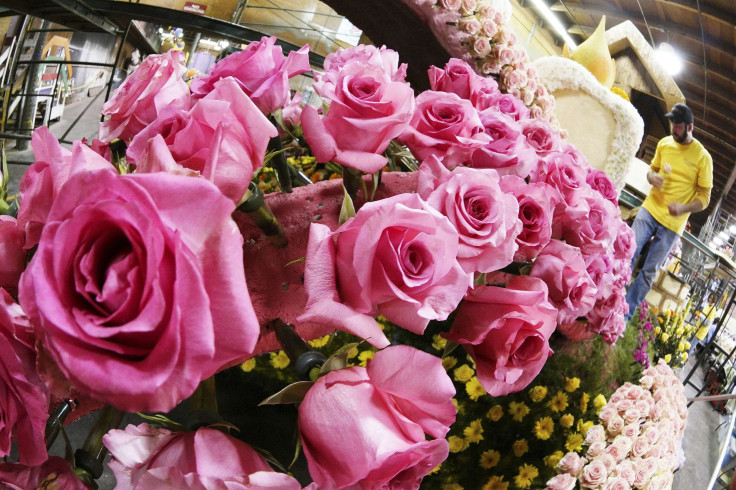Rose Parade 2015: First Sikh Float Aims To Spread Awareness About The Faith

For the first time in 126 years, Sikhs will have a float at the annual Rose Parade in Pasadena, California, on Thursday. The float, presented by the United Sikh Mission, aims to educate the general public about a religion that is often mistaken as a Muslim sect and is a target of hate crimes because of it.
“Their impression is that we are part of Osama bin Laden because everywhere on the news they show Osama bin Laden with a turban,” Jatinder “JP” Singh, of Moreno Valley, California, told the Pasadena Star-News. “There are so many Muslims in the U.S. and they don’t wear turbans. But Sikhs wear a turban everywhere.”
It took nearly $300,000 in donations to build the float for the New Year’s Day parade, which usually draws 700,000 onlookers and more than the 55 million TV viewers. It’s to that vast audience that Sikhs hope to spread their message.
The float will have 17,000 multicolored roses and 2,500 gerbera daisies. A replica of the first Sikh temple, known as a gurdwara, will be on the top. A train engine will symbolize Sikhs who immigrated to work on the country’s railroads. A red tractor with peaches, grapes, almonds and cantaloupes will represent Sikhs who work in agriculture. Sikh servicemen, police officers, Boy Scouts, doctors and lawyers will ride on the float.
"It's not what we believe in, it's about who we are," Rashpal Dhindsa, CEO of the United Sikh Mission, told the Los Angeles Times about the float. He came up with the idea of having a float in the Rose Parade eight years ago. After years of applying to the parade, the mission gained approval for the 2015 event.
Statistics show this kind of education is needed. A 2012 study revealed that 67 percent of Sikh students who wore turbans were bullied in school. A 2013 study conducted by Stanford University’s Peace Innovation Lab found that 70 percent of Americans misidentify turban-wearers as Muslim, Hindu, Buddhist or Shinto. Nearly half of Americans believe Sikhism is a sect of Islam rather than an independent religion.
The study came on the heels of one of the deadliest hate crimes against a religious minority in the U.S. On Aug. 5, 2012, a white supremacist entered a Sikh temple in Wisconsin and killed six people. Other violent hate crimes against Sikhs continue to be reported. According to the U.S. Department of Justice, more than 800 bias incidents against Sikh, Arab, Muslim and South Asian Americans have been investigated.
Two of the most recent incidents took place in New York this summer. In August, a 29-year-old Sikh man was critically injured after he was hit by a car in Queens. The driver reportedly called the man a “terrorist” and told him to “go back to your country.” Less than two weeks later, another Sikh man, Dr. Jaspreet Singh Batra, was reportedly attacked on Roosevelt Island by a group of teenagers who called him “Osama bin Laden.”
Sikhism is the fifth-largest organized religion in the world, with 29.5 million members. About 700,000 live in the U.S. It is a monotheistic religion that was founded in the 16th century. Baptized men wear turbans, which represent honor, self-respect, courage, spirituality and piety.
"We really stand out in a crowd," Jasit Singh, executive director of the Sikh American Legal Defense and Education Fund, told the Los Angeles Times. "In the post-9/11 environment, it really has been a target on our back in many ways."
The float at the Rose Parade may change that.
“In a way, creating awareness about the tradition is a life-and-death proposition for the Sikh community,” Simran Jeet Singh, a senior religion fellow for the Sikh Coalition and a Ph.D. candidate in the Department of Religion at Columbia University, wrote in an article for Time. "It’s an opportunity for all of us to assert the importance of America’s most treasured ideals, including its diversity and freedom of religion, and ensure they are preserved for generations to come.”
© Copyright IBTimes 2024. All rights reserved.






















